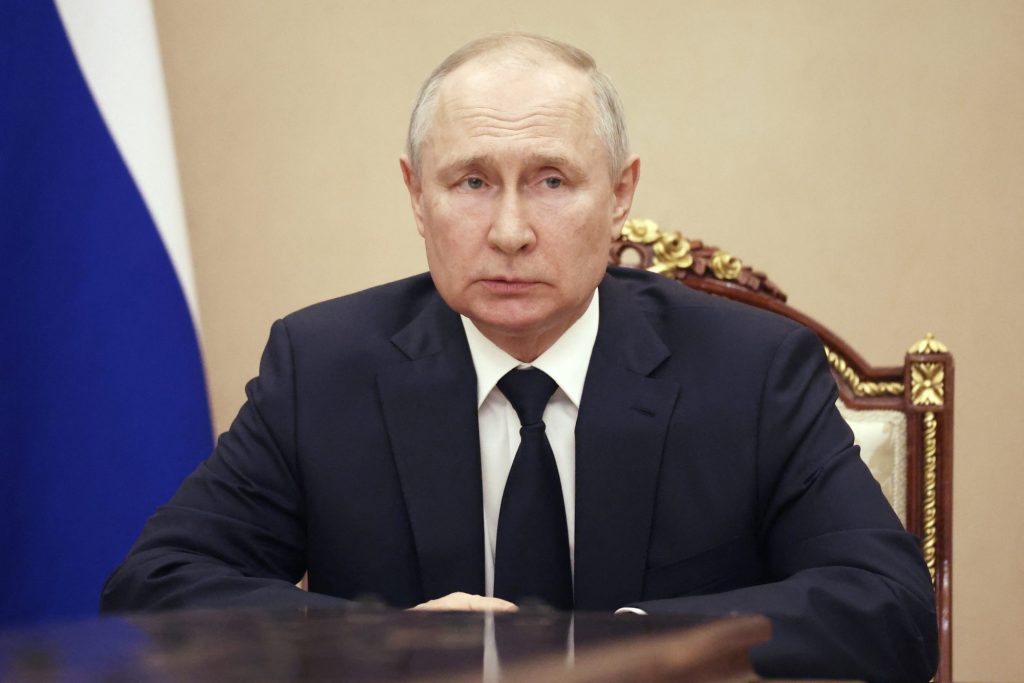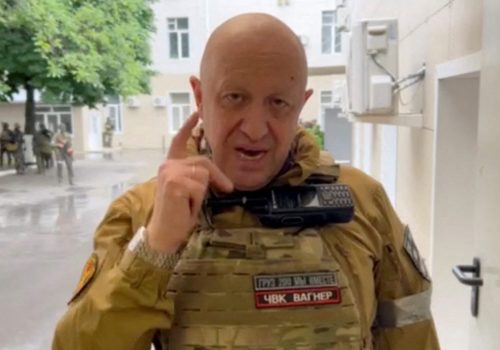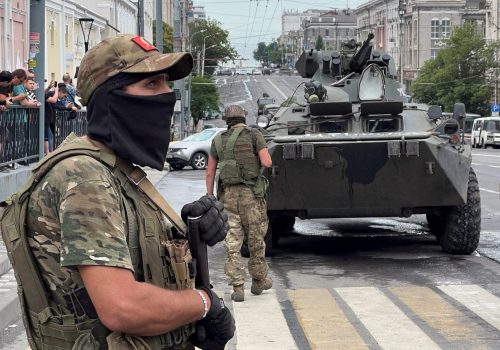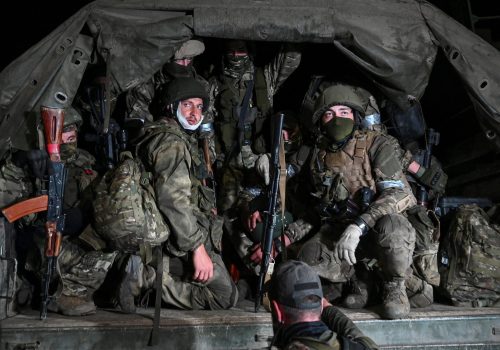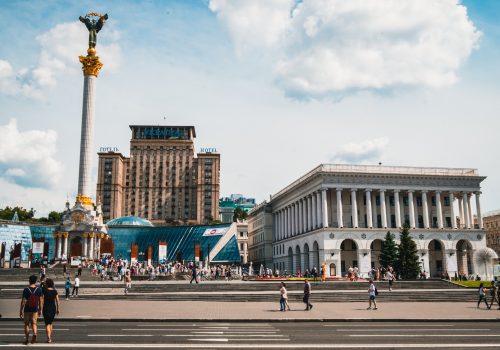
Putin’s Wagner weakness is a signal to support Ukraine’s counteroffensive

The recent Wagner mutiny in Russia was a short-lived affair but it has succeeded in exposing the myth of Vladimir Putin as a formidable political strongman who will go to extremes to achieve his goals. In reality, Putin’s failure to punish mutinous troops who seized a major Russian city and marched on Moscow has revealed him as a weak leader who is more inclined to capitulate than escalate.
This makes a mockery of longstanding international concerns over “provoking Putin” that have done so much to slow down the flow of Western military aid to Ukraine over the past sixteen months. The Russian dictator’s feeble response to the Wagner rebellion should now serve as a strong signal to increase Western support for Ukraine’s current counteroffensive.
Putin’s handling of the Wagner mutiny compares unfavorably to the conduct of his predecessor in the Kremlin, Boris Yeltsin, and that of Ukrainian President Volodymyr Zelenskyy. Yeltsin famously led opposition to the failed coup in August 1991 that sealed the fate of the USSR. When the full-scale Russian invasion of Ukraine began in February 2022, Zelenskyy rejected offers to evacuate and instead announced that he was staying in Kyiv. In contrast, Putin was notably absent during the first day of the Wagner mutiny when Russia appeared to be in real danger. Subsequent attempts to minimize the damage via a series of carefully choreographed public appearances have merely served to highlight Putin’s earlier absence.
Subscribe to UkraineAlert
As the world watches the Russian invasion of Ukraine unfold, UkraineAlert delivers the best Atlantic Council expert insight and analysis on Ukraine twice a week directly to your inbox.
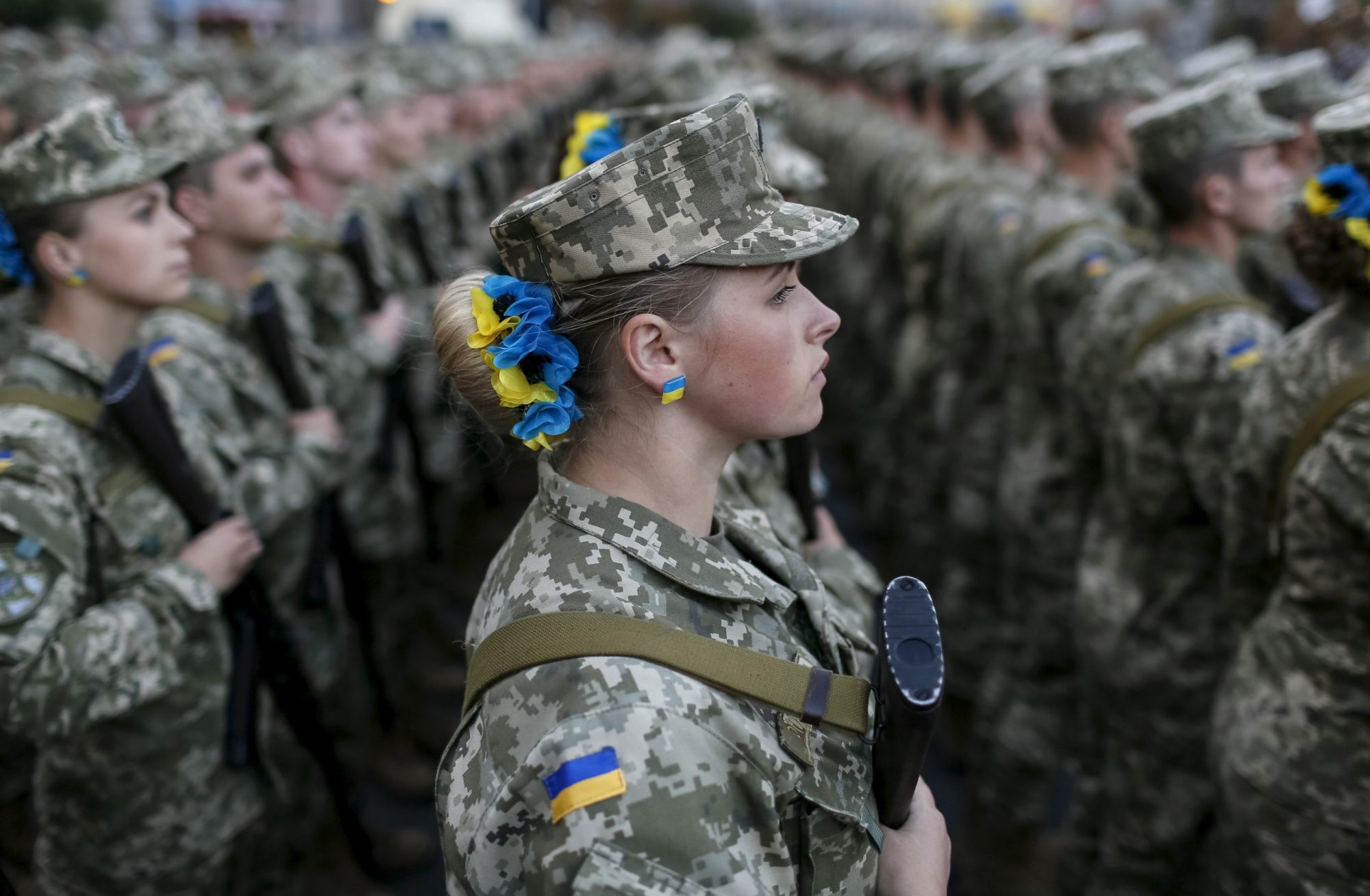
-
-
-
This field is for validation purposes and should be left unchanged.
In hindsight, none of this is surprising. Throughout his career, Putin has made a habit of backing down whenever he has found himself confronted by a determined adversary. In 2014, Putin occupied Crimea without a fight but then got cold feet when faced with fierce resistance in eastern Ukraine. Instead of pressing home his overwhelming military advantage and seizing the whole of eastern and southern Ukraine, he settled for less than half of the Donbas region. Likewise, Putin ordered no direct military response when Turkey shot down a Russian jet in 2015, and took no action three years later when clashes with US forces in Syria led to the heavy casualties among Russian Wagner troops.
Like a true bully, Putin only embarked on the full-scale invasion of Ukraine because he believed the country was an easy target. His intelligence agencies claimed the Ukrainian military would not fight back and assured him that most ordinary Ukrainians would welcome his invading army as liberators. Crucially, Putin was also confident the Western response would be as half-hearted as it had been in 2014 when he invaded Crimea and eastern Ukraine. These miscalculations have proven extremely costly for Russia.
Eurasia Center events

Ukraine’s resolute resistance and the West’s powerful military support have placed Putin in a quandary. He has responded with empty bluster, declaring a series of meaningless red lines while refraining from any attacks on the NATO countries engaged in arming Ukraine. Throughout the war, Putin has used nuclear blackmail in a bid to intimidate Western leaders, but even this extreme measure is proving increasingly ineffective. In September 2022, he vowed to use nuclear weapons to defend recently annexed Ukrainian lands, declaring, “I’m not bluffing.” However, when Ukrainian forces called his bluff and continued to advance, he did not act on his earlier nuclear threats.
This lack of decisive leadership has contributed to the poor battlefield performance of the Russian army in Ukraine. Demoralized Russian troops have barely advanced since summer 2022, and spent more than ten months capturing the small city of Bakhmut in eastern Ukraine. Wagner leader Yevgeniy Prigozhin was at pains to state that his recent mutiny was against Russia’s army chiefs rather than Putin himself, but the Russian dictator must ultimately accept personal responsibility for the disastrous invasion. After all, he has stood by his failing commanders despite their obvious shortcomings, and has consistently placed loyalty above competence.
Putin’s emphasis on loyalty reflects his fear of domestic opposition. For much of his reign, he has been preoccupied with the idea of losing power through a popular uprising or palace coup. This has led to the elimination of all political opponents and the silencing of independent media in today’s Russia. It has also shaped the conduct of the current war, with Putin deeply reluctant to undertake a new round of mobilization that could further destabilize the situation inside Russia.
The Wagner mutiny demonstrated that these fears of a domestic uprising are entirely justified. Wagner troops were able to capture Rostov-on-Don without a fight and then advance virtually unopposed across Russia to within 200 kilometers of Moscow. Strikingly, thousands of ordinary Russians in Rostov-on-Don welcomed the Wagner takeover of the city and openly demonstrated their backing for the mutiny.
Meanwhile, there was little evidence of any surge in support for Putin, either among the public or within the ranks of the Russian military and security services. Putin’s obvious reluctance to hold Prigozhin or his troops accountable for their actions has now further undermined morale within the armed forces and raised the prospect of infighting engulfing Russia.
Putin’s toothless response to Prigozhin’s mutiny has sent a signal that he is far from the all-powerful ruler of Kremlin propaganda, and is in fact much weaker than previously imagined. Many within the Russian elite now recognize this reality and are growing increasingly alarmed over the fragility of the current regime. They understand that Putin has lost his legitimacy as a strongman ruler and is leading Russia toward an uncertain future of deepening domestic divisions and international isolation. Understandably, thoughts are now turning to the post-Putin era.
Western leaders should respond to the Wagner affair by doubling down on their military aid to Ukraine. Ever since the full-scale invasion of Ukraine began on February 24, 2022, misplaced concerns over possible Russian escalation have served to limit weapons deliveries to Kyiv, when a more decisive approach might have already ended the war. With Putin’s weakness now on display for all to see, the time has come to provide Ukraine with everything it needs to secure victory.
Taras Kuzio is a professor of political science at the National University of Kyiv Mohyla Academy. His latest book is “Genocide and Fascism. Russia’s War Against Ukrainians.”
Further reading
The views expressed in UkraineAlert are solely those of the authors and do not necessarily reflect the views of the Atlantic Council, its staff, or its supporters.

The Eurasia Center’s mission is to enhance transatlantic cooperation in promoting stability, democratic values and prosperity in Eurasia, from Eastern Europe and Turkey in the West to the Caucasus, Russia and Central Asia in the East.
Follow us on social media
and support our work
Image: Russian President Vladimir Putin holds a meeting with heads of Russian security services in Moscow, Russia, June 26, 2023. (Sputnik/Valery Sharifulin/Pool via REUTERS)
